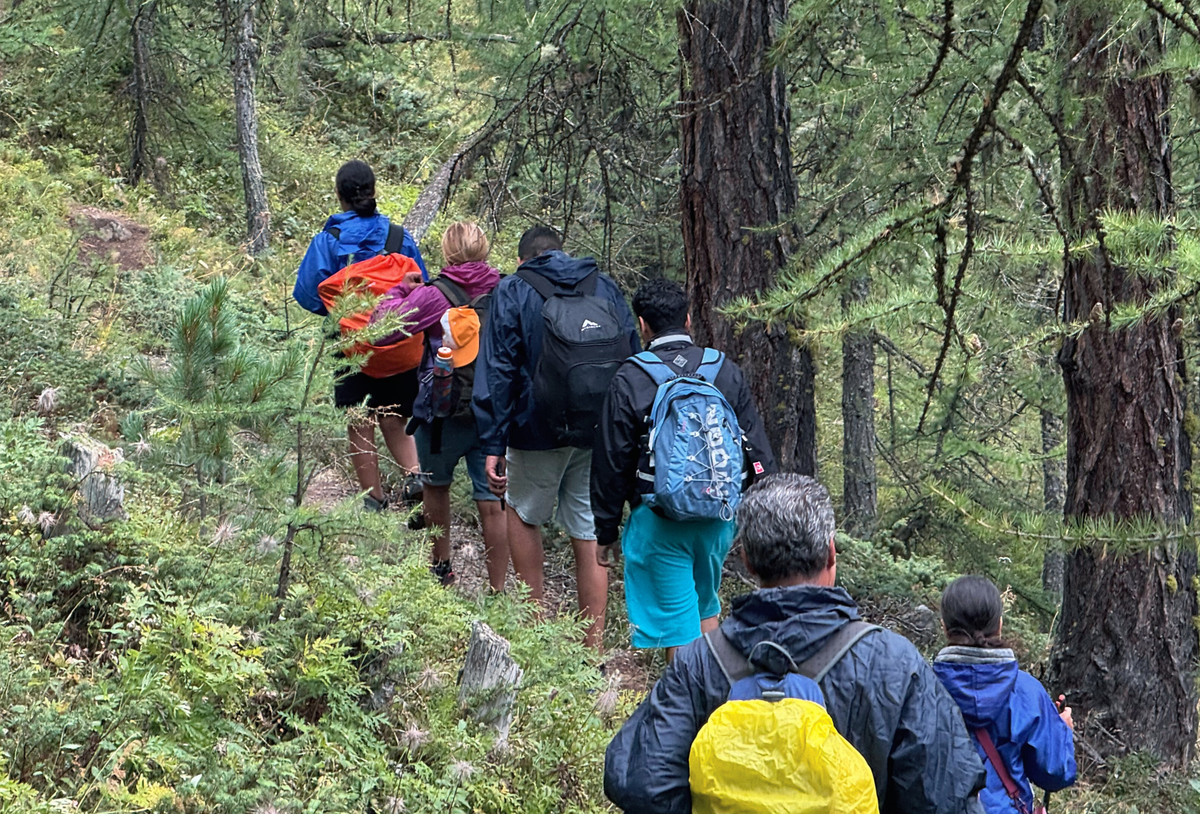For a few uncomfortable seconds, terror flashed across the faces of Nesrine and her family as they picked their way along a mountain path above the French Alpine town of Montgenèvre. A large gap in the pine trees on the trail had left them exposed. The six Algerian migrants froze, exchanging nervous glances, unsure whether to retreat.
Far below, two police vans patrolled the road linking France and Italy. To the left, a checkpoint buzzed with a dozen globe-shaped surveillance cameras, quad bikes parked out front; to the right, a watchtower stood over the valley.
Then, as if by chance, three Italian tourists appeared on the trail ahead. The Algerians, disguised in waterproofs and hiking boots, some even carrying walking poles, seized the opportunity to cross the gap at the same time. “We’ll blend in with them,” whispered Nesrine, 17, ushering her parents, cousin, and little brother and sister to move. Within moments, they had successfully crossed the gap.
Over the past decade, tens of thousands of migrants like Nesrine have taken to these snow-capped peaks, gambling on the 1,900-metre pass at Montgenèvre to slip across the border to France undetected. Many attempt it at night, sometimes arriving days later on the other side injured, dehydrated and exhausted after hiking up slippery, steep ridges, off-trail via dense pine forests and, during colder months, through treacherous swathes of snow. Others never arrive at all: more than a dozen migrants have died while making the journey.
Register for free to read this article.
